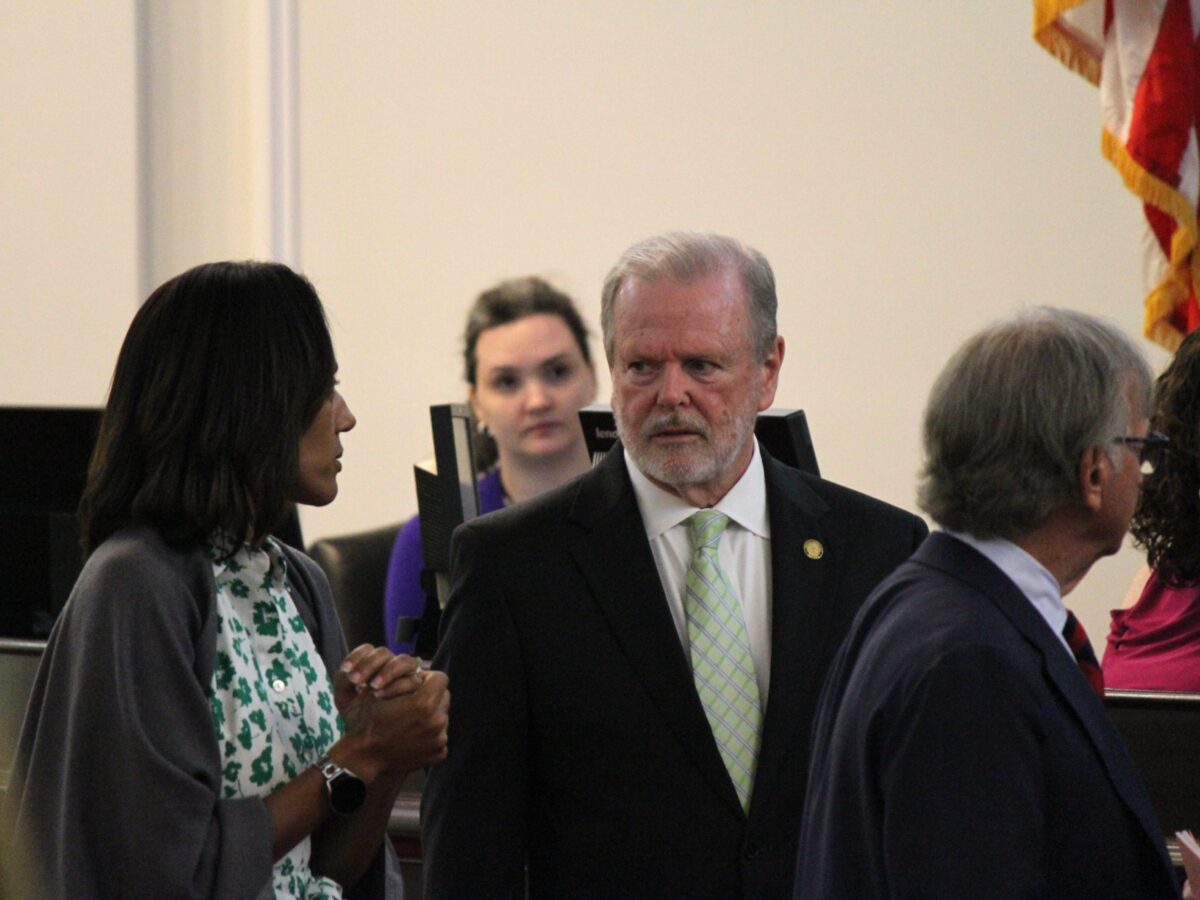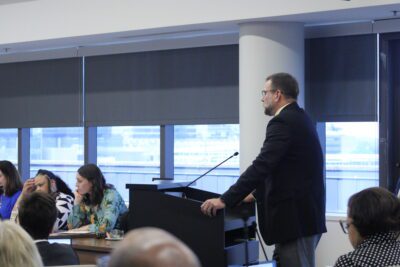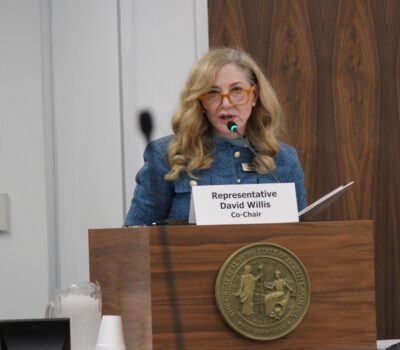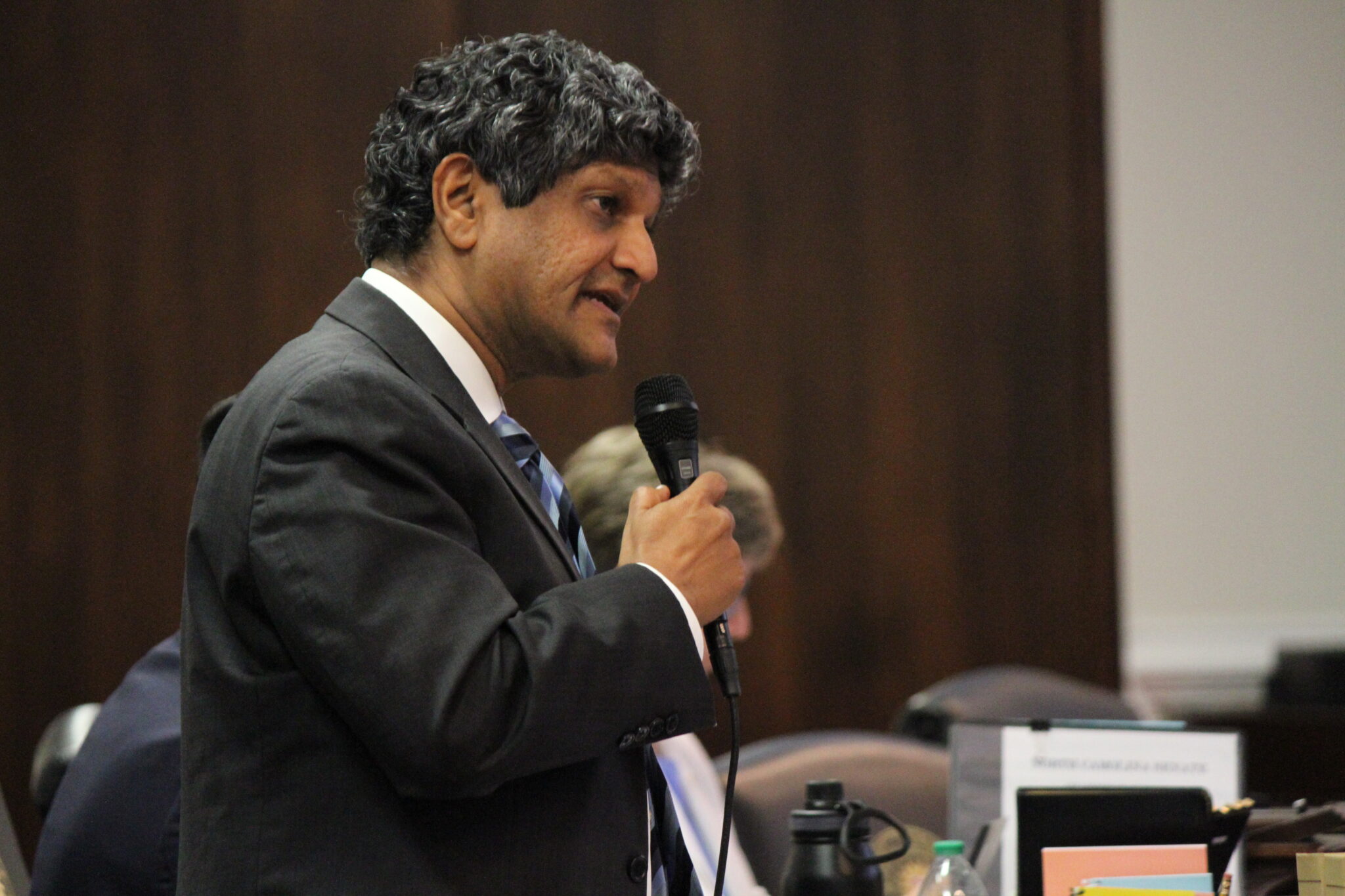
Editor’s note: This article was updated on Aug. 6 with additional information about the tax credit, comments from North Carolina organizations, and a statement from Gov. Josh Stein regarding his veto of House Bill 87.
Both chambers of the state legislature voted the last week of July to elect North Carolina to participate in a new federal school choice program — the first federal program of its kind. The federal government will offer people in participating states up to a $1,700 tax credit annually for donations made to qualifying “scholarship granting organizations.”
The federal tax credit is included in the budget reconciliation bill championed by President Donald Trump, which he signed into law on July 4. The provision states the tax credit “shall apply to taxable years ending after December 31, 2026.” States must choose to opt in to the program to participate.
A North Carolina bill, House Bill 87, called the “Educational Choice for Children Act” (ECCA), would enroll the state in the federal tax credit program. It passed largely along party lines, with Republicans supporting and Democrats mostly opposing.
On Wednesday, Aug. 6, Gov. Josh Stein vetoed HB 87, saying that while he supports school choice, he does not agree with funding private school choice initiatives while “cutting public education funding by billions of dollars.”
“However, I see opportunities for the federal scholarship donation tax credit program to benefit North Carolina’s public school kids,” Stein said. “Once the federal government issues sound guidance, I intend to opt North Carolina in so we can invest in the public school students most in need of after school programs, tutoring, and other resources.”
With a Republican supermajority in the Senate and a majority in the House, it is possible lawmakers could override the governor’s veto before that federal guidance comes.
Among other things, HB 87 would authorize the North Carolina State Education Assistance Authority (NCSEAA) to submit a list of qualifying scholarship granting organizations to the federal government. Then, donations to those organizations would be tax-deductible up to $1,700 per year.
The Opportunity Scholarship, North Carolina’s program that provides vouchers for families to pay for students to attend eligible private schools, served 80,472 recipients last year. Just 8.4% of those students attended a public school the year before, meaning most new beneficiaries of the program were already in private schools before receiving vouchers, EdNC previously reported.
![]() Sign up for the EdDaily to start each weekday with the top education news.
Sign up for the EdDaily to start each weekday with the top education news.
About the federal tax credit program
The program offers a tax credit of up to $1,700 per year in 1:1 reimbursement for taxpayers who donate to organizations that grant elementary or secondary education scholarships. Unused credit can be rolled over for up to five years.
The provision in the federal law instructs the relevant representative of each state to sign up for the program by submitting a list to the federal government. That’s what the ECCA does for North Carolina.
Some of the requirements to qualify as a scholarship granting organization under the federal program include:
- Be on the list submitted to the federal government;
- Be classified as a tax-exempt 501(c)(3) organization;
- Not be a private foundation;
- Not co-mingle contributions with funds for purposes other than scholarships;
- Provide scholarships to at least 10 students who do not all attend the same school;
- Not earmark funds for specific students;
- Prioritize returning students and siblings of current recipients;
- Spend not less than 90% of the organization’s income on scholarships for eligible students;
- Provide scholarships only for elementary and secondary education expenses; and
- Verify students awarded scholarships come from households that make under 300% of the local area median gross income (equivalent to more than $300,000 in some parts of the country).
Eligible students must live in the same state as the organization, come from households that meet the income requirement, and must qualify to attend a public elementary or secondary school. Scholarships could then go toward tuition, books, and other education expenses, and could be stacked on top of state dollars in states like North Carolina that already have their own voucher programs.
A New York Times report about the program said that “public school students would also likely be eligible, but what they would use the money for and how that would work was not immediately clear.”
The U.S. Secretary of the Treasury is tasked with issuing regulations and other guidance required to carry out the program.
Read the full provision (Section 70411) detailing the tax credit here.
How much will the tax credit cost?
An Institute on Taxation and Economic Policy (ITEP) analysis said nationwide, potentially more than 138 million people could make full use of the tax credit in 2027 if they wished.
However, it said, not all members of the public support private school vouchers. If 59 million potentially interested taxpayers took advantage of the program, the ITEP estimated the cost to the federal government would be $101 billion per year.
“Official estimates released by Congress’s Joint Committee on Taxation place the revenue cost at around $3 to $4 billion per year, with costs rising over time as more families get into the habit of using this tax credit,” the analysis said. “Those revenue estimates imply that there will be around 1.8 to 2.6 million donors per year. But there is considerable uncertainty in these estimates and, as the calculations above make clear, there is a real risk of a major cost overrun in this program.”
In an earlier draft of the federal bill, there was a cap of $5 billion per year, but that was removed in the final budget reconciliation bill.
The program is set to be funded through federal revenue, meaning that if more people take advantage of the program than expected, the reimbursement costs could reduce the amount of federal funding available for other purposes.
Read about market share and private school enrollment growth in NC



What NC lawmakers have said
Rep. Brian Biggs, R-Randolph, introduced the ECCA in the North Carolina House.
“(The ECCA) empowers families, expanding access to educational opportunities and scholarships,” Biggs said. “The main thing is this brings no new cost to our state, and it leverages private dollars.”
Senate Leader Phil Berger, R-Rockingham, said there would be no impact on state revenue, except for the “minimal cost” of NCSEAA maintaining the list of scholarship granting organizations.
In the House, Rep. Julie von Haefen, D-Wake, who opposed the bill, said public schools are “crying out for investment.”
“The credit will fully reimburse donors for the first $1,700 that they give to groups that hand out vouchers to private school students,” she said. “There is literally no other cause existing right now — not children’s hospitals, veterans’ groups, disaster relief organizations — that taxpayers can contribute to and receive the entire cost of their contribution bankrolled by their federal government.”
In the Senate, Democrats challenged the ECCA by offering amendments highlighting issues they said should be addressed before more public money is sent to private schools.
“I understand the desire to participate in this federal scheme, and, you know, still remain baffled about how we can defund public education and provide significant kickbacks to private schools,” said Sen. Sophia Chitlik, D-Durham. “But if that’s what we’re going to do, I want to make sure that we’re also supporting students in our public schools.”
Chitlik offered an amendment that would have changed the effective date of the ECCA from “effective when it becomes law” to “when the average per pupil spending in the State’s public schools meets or exceeds the national average per pupil spending.”
A substitute amendment was offered by Sen. Ralph Hise, R-Mitchell, and Chitlik’s amendment failed. That started a back-and-forth where Democrats offered amendments that were either replaced or tabled by Republicans.

Here are the other amendments that were offered and failed:
- Sen. Kandie D. Smith, D-Pitt, moved to change the effective date of the ECCA to “when the average salary for public school teachers in the State meets or exceeds that national average salary for public school teachers.”
- Sen. Val Applewhite, D-Cumberland, moved to change the effective date to “when the State fully funds the cost of all free and reduced price meals for all public school students who qualify.”
- Sen. Lisa Grafstein, D-Wake, moved to change the effective date to “when the State fully funds special education in the State’s public schools.”
- Sen. Jay J. Chaudhuri, D-Wake, moved to add a $1,000 state tax credit for donations to public elementary and secondary schools.
- Grafstein moved to add a requirement that scholarship granting organizations be prevented from granting scholarships to the immediate family members of donors.
- Sen. Natalie S. Murdock, D-Durham, moved to add a $1,000 state tax credit for donations to disaster relief organizations.
“This might sound like free money, but let’s be clear, it’s actually the opposite. Every dollar the federal government gives out in tax credits is a dollar no longer paying for public schools,” Chaudhuri said.
What are other people saying?
In a July 31 email newsletter, Parents for Educational Freedom in North Carolina (PEFNC) said the new federal program “could help families close the gap between NC state scholarships, like the Opportunity Scholarship, and private school tuition — without costing the (NC) government a dime.”
According to PEFNC, families making up to $212,000 a year in North Carolina are eligible to receive scholarships funds received through the program.
“This is NOT a tax credit for parents,” the email said. “Instead, donors get a federal tax credit for giving to Scholarship Granting Organizations (SGOs). Those SGOs provide scholarships to families.”
In the email, PEFNC President Mike Long thanked the legislature for supporting the new program.
“This bill encourages philanthropy to fuel educational opportunities and empowers parents with the freedom to choose the environment where their child learns best,” Long said. “Anyone who puts students first and values their success will support this bill too.”
North Carolina Association of Educators (NCAE) President Tamika Walker Kelly disagrees with that sentiment, writing in an Aug. 6 email that HB 87 was passed by the General Assembly as “public schools are being asked to do more with less.”
“We want every child, in every ZIP code, to have access to a strong public education,” she said. “That starts with fully funding the schools our families rely on — not diverting tax dollars to private institutions with no accountability to the public.”
Correction: A previous version of this article said the U.S. Secretary of Education is tasked with overseeing the voucher program. Under the federal budget bill, the U.S. Secretary of the Treasury is charged with regulating it. The article has been updated.
Recommended reading




